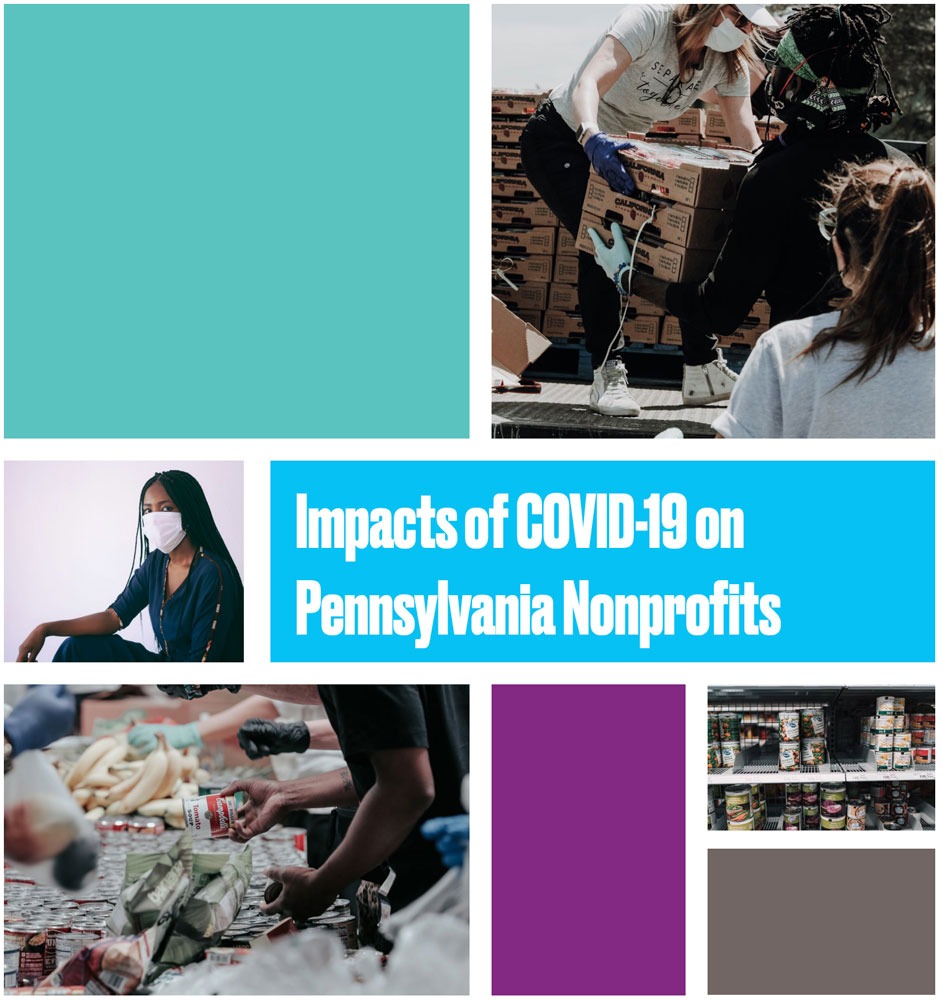
October 19, 2020; Times Leader (Wilkes-Barre, PA)
The baseline for COVID-19’s economic impact on Pennsylvanian nonprofits is $708 million dollars, according to a recent excellent survey from the Pittsburgh Foundation, its coalition partners, and consulting firm Fourth Economy.
To be at all helpful as a research tool, surveys need to be mixed with other forms of data collection and response. For instance, the policy-oriented California Association of Nonprofits (CalNonprofits) showed “only half of [surveyed] nonprofits find their government partners helpful,” according to an August survey of approximately 1,000 nonprofits. This provides guidance for advocacy efforts that can help to change circumstances rather than simply document loss.
This bridging mechanism was used in the new report, Impacts of COVID-19 on Pennsylvania Nonprofits. This survey shows two percent of the state’s nonprofits weathering $612 million in decreased revenue and $95.3 million in new operating expenses. These findings raise questions about how much loss remains unreported and underrecognized by lawmakers, but the coalition behind this promising document have declared themselves committed for the duration.
In this case, Fourth Economy was tapped to conduct a survey and analyze COVID-19’s impact on Pennsylvania nonprofits. The survey was advised and promoted by a coalition led and funded by the Pittsburgh Foundation. Coalition organizations included the Community Foundation of Westmoreland County, the Pennsylvania Association of Nonprofit Organizations, the Forbes Funds, and the United Way of Southwestern Pennsylvania.
Survey data came from a voluntary sample of about 800 nonprofits from August 3–28. Of the responding nonprofits, 69 percent shared that the populations they served were “more diverse than average” for the state.
Topline findings from the survey showed 80 percent of nonprofits reported revenue losses, with small nonprofits hit hardest. Organizations with revenues under $100,000 lost 47 percent of anticipated 2020 revenues. Losses reduced according to size, with nonprofits over $10 million showing only seven percent in losses.
In terms of employment, the survey also showed 17 percent of nonprofit staff “were laid-off or had their pay reduced through the first half of 2020.” Surveyed nonprofits anticipate an eight percent increase in similar belt-tightening tactics by December 2020.
Most alarming was the balance presented for human service agencies: $64 million in cost increases and $255 million in revenue decreases, according to a release. This subsector represents 19 percent of survey respondents and seven percent of the impact on state human service agencies.
Sign up for our free newsletters
Subscribe to NPQ's newsletters to have our top stories delivered directly to your inbox.
By signing up, you agree to our privacy policy and terms of use, and to receive messages from NPQ and our partners.
By showing some of the specificities of COVID’s economic impact, the coalition also sought to use the survey to close gaps in how state nonprofits access the Coronavirus Aid, Relief, and Economic Security (CARES) Act. This survey accompanies advocacy for Senate Bill 1254 and House Bill 2470 for the Nonprofit Economic Emergency Delivery System Grants (NEEDS) Program.
In Pennsylvania, “35 million in operating costs reported are not eligible for CARES Act funding,” the report states. Through the NEEDS Program, the state’s 8,500 human services nonprofits would receive funding to further their roles as “key determiners of basic quality of life in communities.”
Lisa Schroeder, president and CEO of the Pittsburgh Foundation, said in a release:
The increase in vulnerability for those nonprofits alone is significant, but the survey findings on the nonprofit sector overall should sound four alarms about the threat to the state’s economy and general quality of life. It is our hope that these findings are a call to arms for dedicated COVID relief to support the sector. Our ability to recover from this pandemic is very much dependent on the ability of nonprofits to continue their missions.
Of the state’s federal CARES Act $1 billion allocation, $200 million for the NEEDS Program is being requested to come from the COVID-19 Response Restricted Account of the Commonwealth Financing Authority. Each eligible nonprofit would receive a maximum of $500,000.
“While this is a preliminary study, and it makes a powerful case for a more in-depth investigation, so that we understand the points of greatest stress in the sector,” said Schroeder in a statement.
Reported statistics also included:
- Nine out of 10 nonprofits reported some negative employment impacts.
- Nonprofits estimate that 25 percent of the employees will experience layoffs or pay reductions by the end of the year.
- 23 percent report increased demand for services.
- 36 percent report more clients.
- 37 percent report reduced or suspended services.
- 48 percent report fewer clients.
- 45 percent report event cancelations or delays.
These findings raise further questions, as good research tends to do, but the coalition has committed itself to understanding the greatest points of stress. This is a critical point: The Pennsylvania survey does a good job of segmenting where problems can be expected, but with the external environment in such chaos and facing such loss, it will be important to keep increasingly sophisticated data gathering efforts in motion.—Nicole Zerillo and Ruth McCambridge












